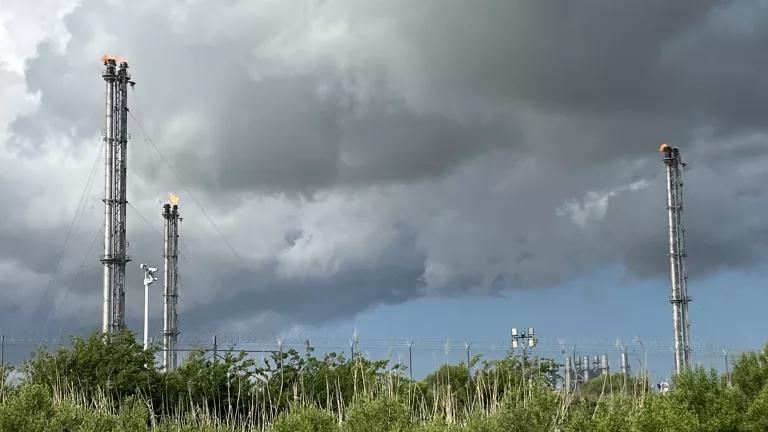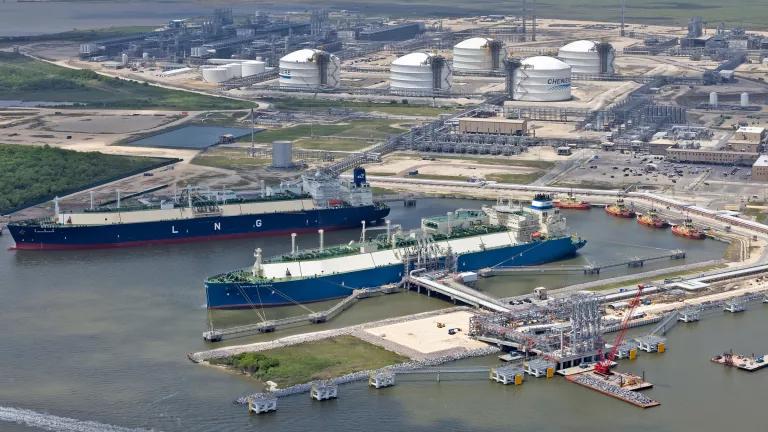Risky Business: Surging U.S. Liquefied Natural Gas Exports Jeopardize Global Decarbonization Goals

Holding global temperature rise to below 1.5 °C above preindustrial levels will require the world to transition away from all fossil fuel production, including fossil gas. Fossil gas is commonly and misleadingly presented as a “transition fuel”—cleaner and with lower CO2 emissions than coal or oil—and as a potential tool to help address climate change. However, neither fossil gas nor liquefied natural gas (LNG) is clean, nor are they particularly low in greenhouse gas (GHG) emissions. The U.S., set to become the world’s largest exporter of LNG by the end of 2022, is continuing to increase LNG production. If the expansion of U.S. LNG infrastructure is left unchecked, by 2030 the production, transportation, and liquefaction of fossil gas in the United States could generate annual emissions equal to the output of up to 45 million fossil fuel–powered cars. The planned expansion of U.S. LNG exports allows the domestic fossil gas sector to continue growing its profits without shouldering any responsibility for the associated climate and environmental impacts domestically and in importing nations.
Instead of leading the world in LNG exports, the United States must curb the deeply harmful expansion of this sector and phase out all support for overseas fossil gas investments impeding decarbonization goals worldwide. We cannot continue to permit new fossil gas expansion, approve further LNG infrastructure development, and grant export licenses—period.




